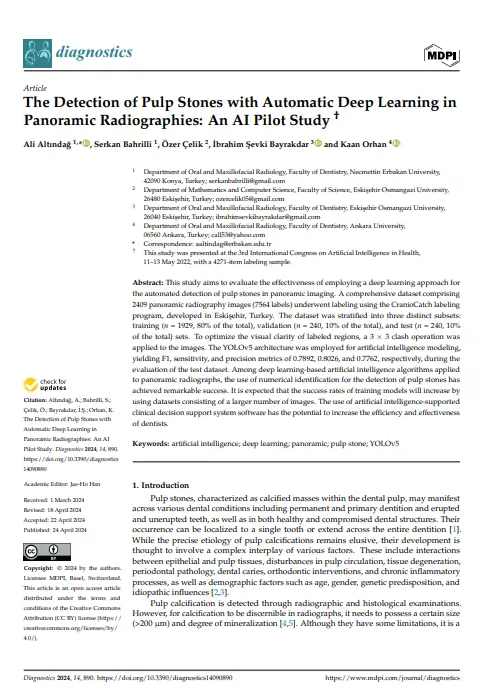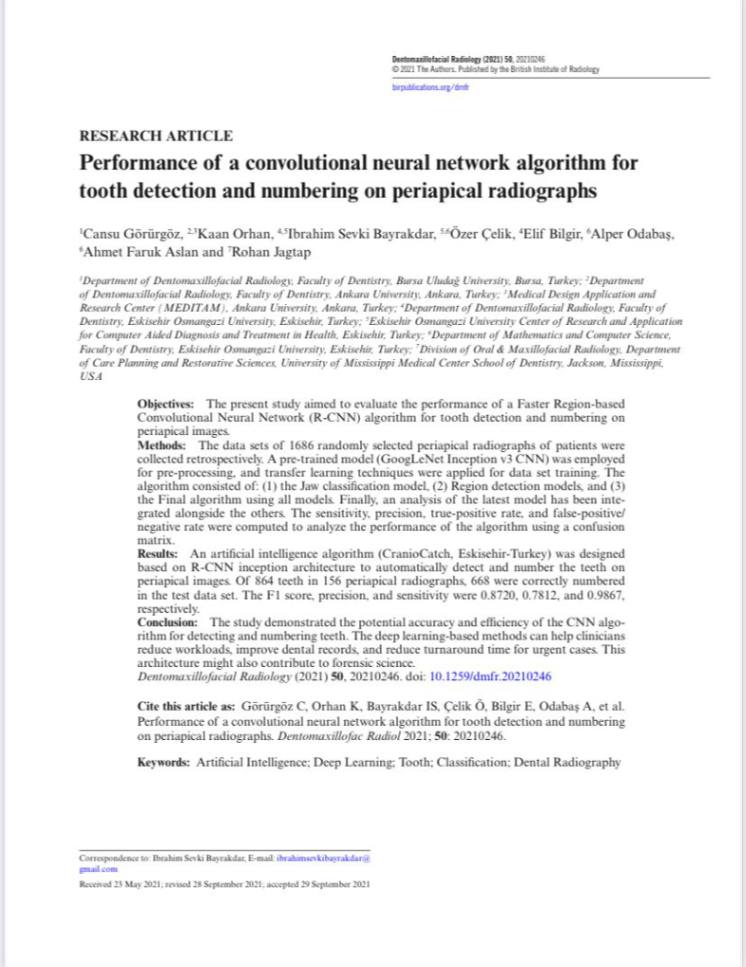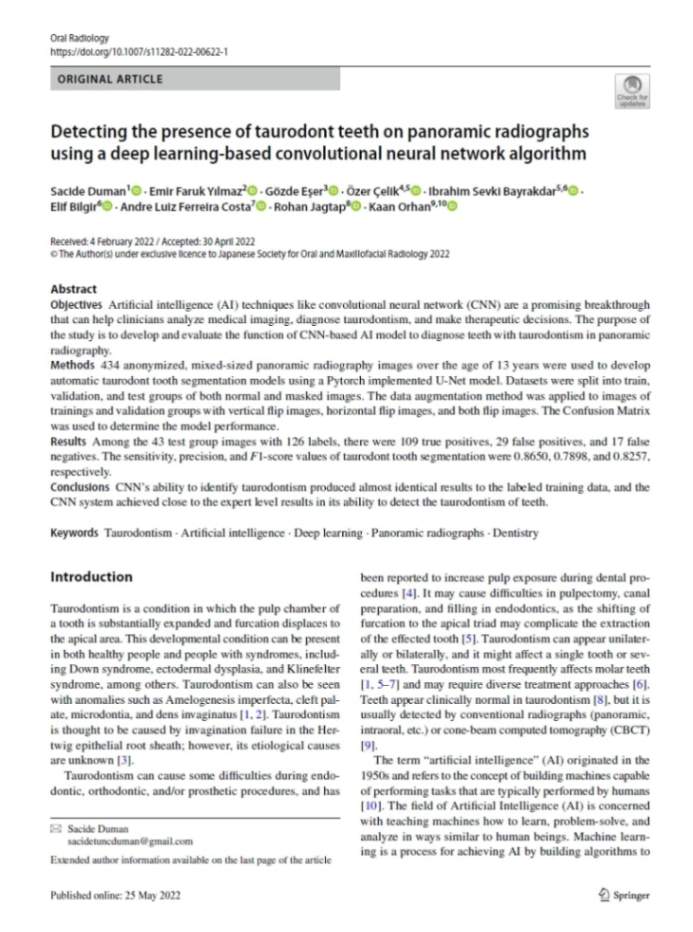Detecting White Spot Lesions On Post-Orthodontic Oral Photographs Using Deep Learning Based On The Yolov5x Algorithm A Pilot Study
Research Objective
White spot lesions are common early signs of dental caries in patients undergoing orthodontic treatment. This study aims to detect these lesions using a deep learning-based YOLOv5x algorithm.
Method and Dataset
435 post-orthodontic intraoral photographs were manually labeled for white spot lesions. This labeled dataset was used to train and test the deep learning algorithm.
Performance Metrics and Results
- Accuracy: 78.6%
- Recall: 61.8%
- F1 Score: 69.2%
- AUC (Area Under the Curve): 71.2%
- mAP (Mean Average Precision): 42.5%
Research Findings
The model performed below expectations in detecting white spot lesions but achieved an acceptable accuracy compared to previous studies. These results suggest that with larger datasets and algorithm improvements, enhanced models could be used in clinical settings.
Conclusion
This pilot study demonstrates the potential use of artificial intelligence in detecting white spot lesions in dentistry. The findings provide a significant foundation for further research and development. The integration of dentistry and artificial intelligence could pave the way for more accurate and rapid diagnostics in the future.
I Want to Write a Scientific Research Project
CranioCatch is a global leader in dental medical technology that improves oral care in the field of dentistry. With AI-supported clinical, educational, and labeling solutions, we provide significant improvements in the diagnosis and treatment of dental diseases using contemporary approaches in advanced machine learning technology.
CranioCatch serves thousands of patients with dental health issues worldwide every day with its innovative technologies. That’s why we eagerly look forward to meeting our valued dentists who wish to work in the field of 'Scientific Research in Dentistry'.



 Contact Us
Contact Us

